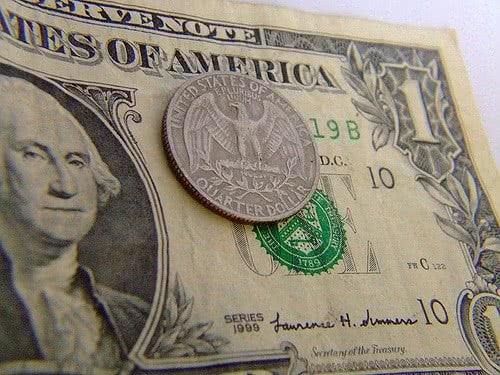
Flickr user Vanessa Pike-Russell
Just when you think you’ve read all you possibly could about student loans, you are sure to come across yet another new term that you need to read up about. Learning everything there is to know about student loans will empower you to make well-informed decisions. With that said, if you have not heard about capitalization and how it can affect student loan interest, it’s time you did.
What Is Capitalization?
When the interest on a loan is added to the principal balance of the loans, it is called capitalization.
When you take a student loan, you start repaying the loan only after the grace period (which is about 6 months after you graduate). However, the interest starts accruing on the loan from the day the funds are disbursed. This accrued interest is added to the current principal or balance on the loan you still owe.
When this happens, interest is no longer in a separate category as the loan principal. Instead, the principal is now capitalized and your student loan servicer will start charging you interest on the capitalized principal (the amount you borrowed + the accrued interest).
All federal direct unsubsidized loans and private student loans are capitalized, so when the time comes for repayment, you will find that the cost of the loan is considerably higher than the amount you actually borrowed.
Federal direct subsidized loans do not get capitalized because the federal government pays off interest on behalf of students, while the student is still in school.
Other Times When the Interest On Your Student Loans May Get Capitalized
If, for whatever reason, after your grace period ends you want to suspend your monthly payments, you may be able to put your loans in deferment or forbearance. This temporarily absolves you from your financial obligations. However, although your payments may be put on hold during the period of deferment or forbearance, the interest continues to accrue on your outstanding principal. This accrued interest is added to the principal and when the deferment or forbearance period ends, your interest will now be calculated on new amount (outstanding principal + accrued interest).

How Capitalization Affects Your Student Loan Interest
Capitalization can increase the size of your student loan substantially because you are in effect paying interest on interest.
The best way to avoid capitalized interest is to borrow as much as you can through subsidized federal loans and minimize your borrowing through unsubsidized federal loans and private student loans.
Another thing you can do is to start making payments on your interest as soon as your loans are disbursed. This means paying off the interest while you are still in school, which may not be a practical solution for everyone.
If you could not pursue those two options to avoid capitalized interest on your loan, you can still take steps to minimize the amount of capitalization on your loan. This can be done by paying off the accrued interest in full when you start making your monthly payments after the grace period or the deferment or forbearance period ends for your loan. This will not help you avoid capitalized interest but it will help to reduce it considerably.
Use College Raptor’s free Student Loan Finder to compare lenders and interest rates side by side!
| Lender | Rates (APR) | Eligibility | |
|---|---|---|---|
 |
5.50%-16.12%* Variable
3.99%-15.61%* Fixed
|
Undergraduate and Graduate
|
VISIT CITIZENS |
 |
5.54% - 15.70% Variable
3.99% - 15.49% Fixed
|
Undergraduate and Graduate
|
VISIT SALLIE MAE |
 |
4.63% - 17.99% Variable
3.49% - 17.99% Fixed
|
Undergraduate and Graduate
|
VISIT CREDIBLE |
 |
6.00% - 13.75% Variable
3.99% - 13.75% Fixed
|
Undergraduate and Graduate
|
VISIT LENDKEY |
 |
5.66% - 14.72% Variable
3.69% - 14.56% Fixed
|
Undergraduate and Graduate
|
VISIT ASCENT |
 |
3.70% - 8.75% Fixed
|
Undergraduate and Graduate
|
VISIT ISL |
 |
5.62% - 16.85% Variable
3.69% - 16.49% Fixed
|
Undergraduate and Graduate
|
VISIT EARNEST |
 |
5.00% - 14.22% Variable
3.69% - 14.22% Fixed
|
Undergraduate and Graduate
|
VISIT ELFI |


